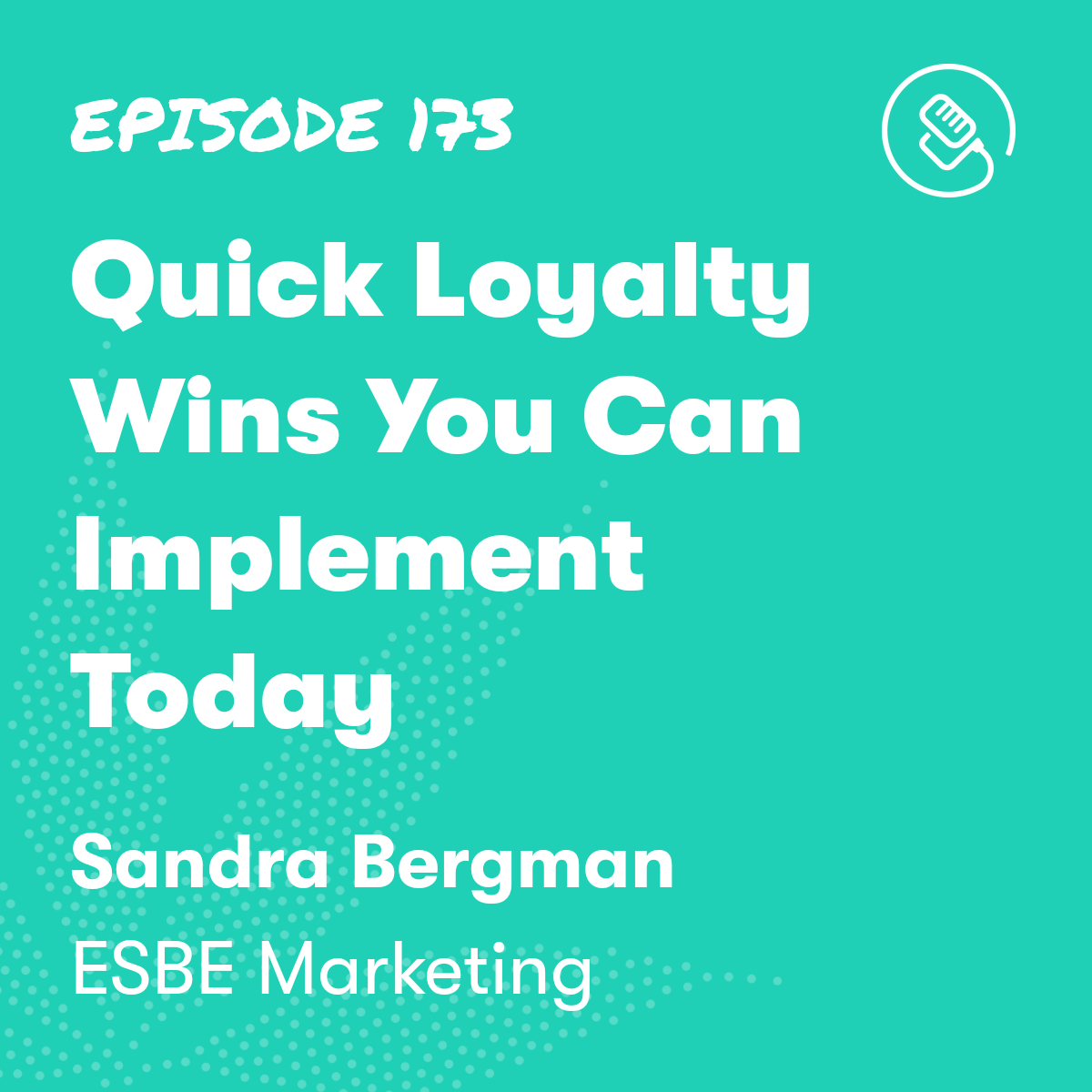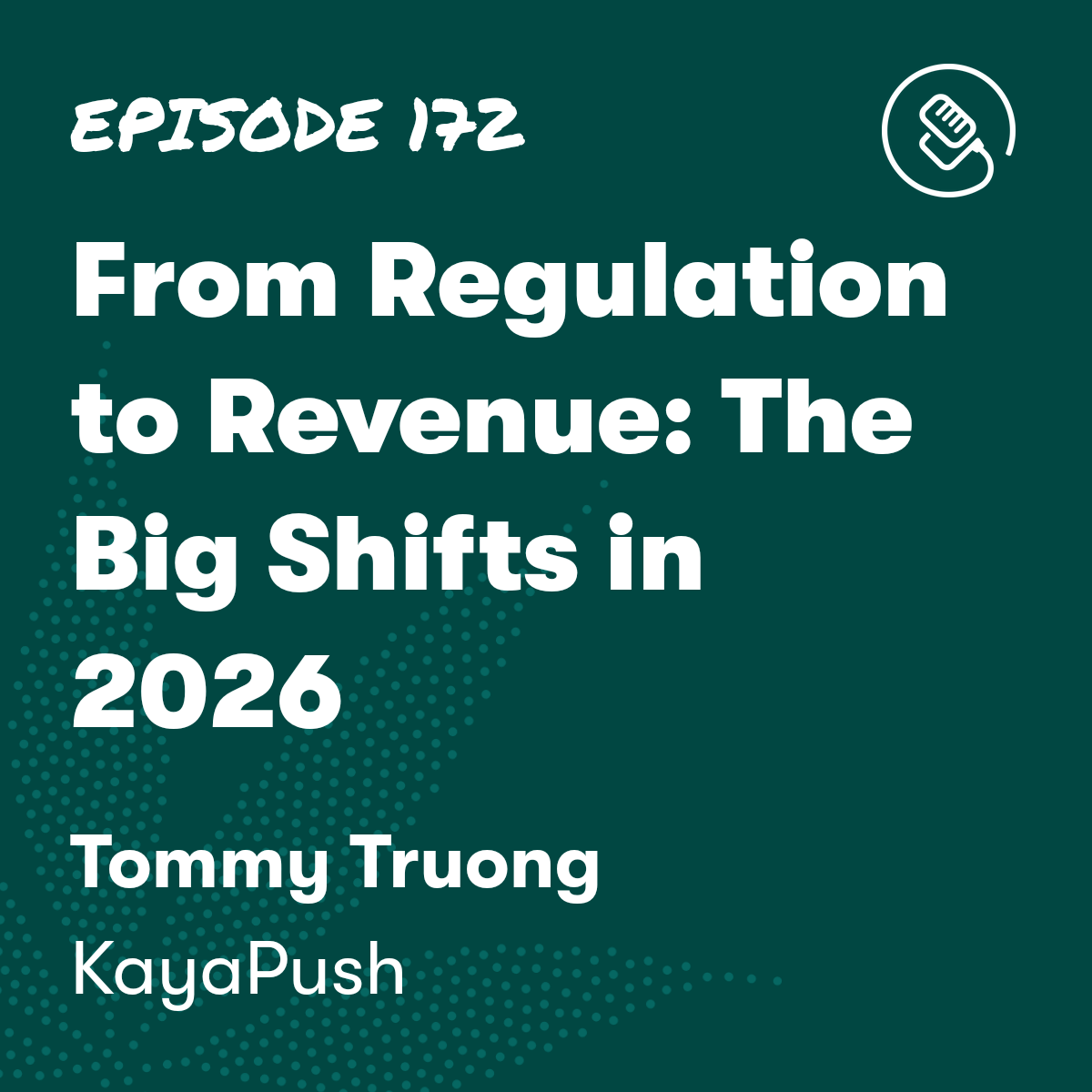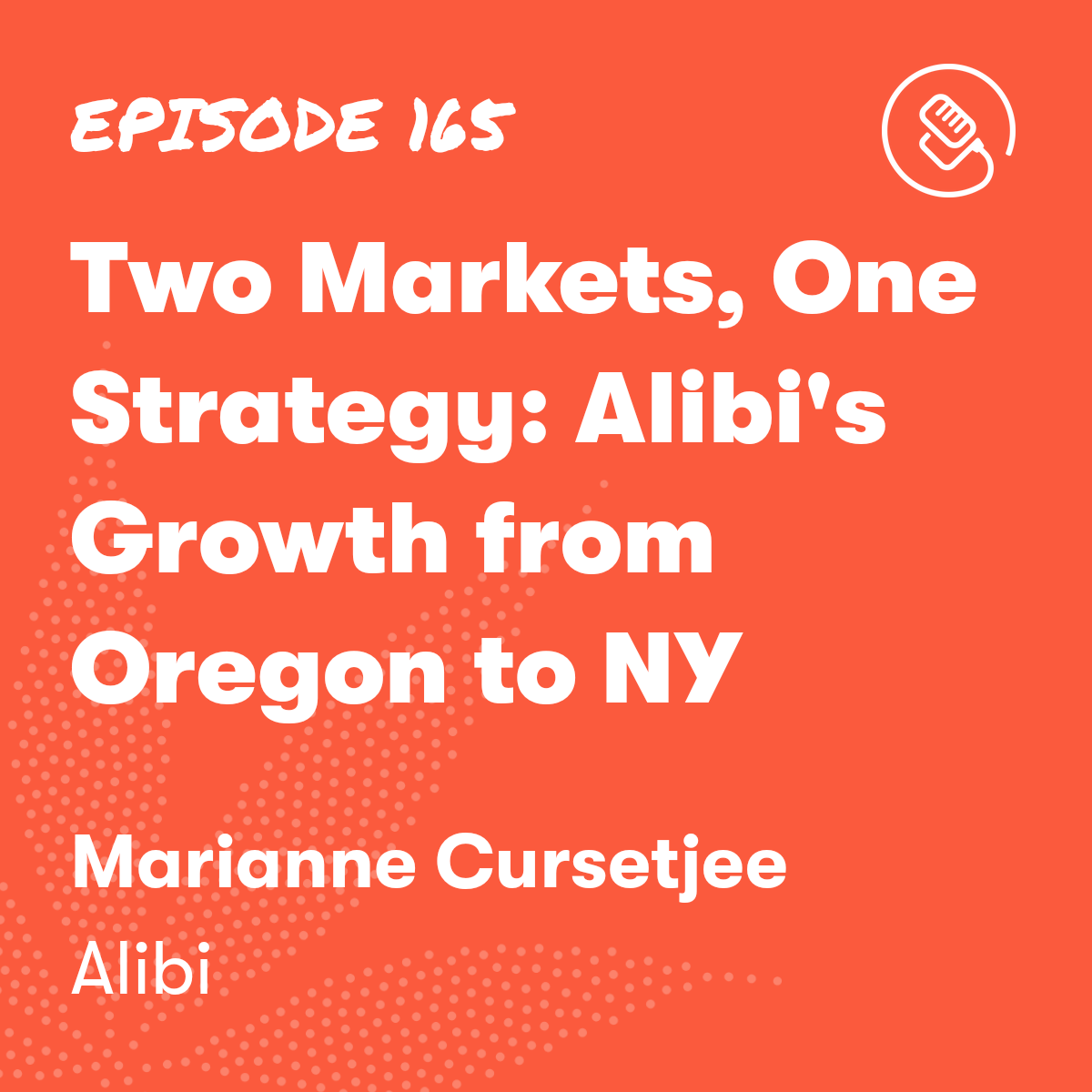

Navigating the Financial Maze of the Cannabis Industry
Episode Description

Episode Transcript
Summer Thorn: Don't try to beat 280e work within what the compliance is with 280e. Work with your accountant and make sure that any financial decisions you're keeping your accountant aware of so that they can make sure that everything's documented correctly. And just keep an ongoing conversation with your accountant.
You pay us money to be there, so talk to us.
Tom Mulhern: Welcome back to the Kaya Cast Podcast. I'm your host, Tom Mulhern, and today on the show I have a conversation live from MJ Unpacked here in New York City with Angelita Green from New Leaf and Summer Thorn from Dope cpa. I got the hat, I got the Kaya Push shirt. I'm ready for this interview.
We had a great, great chat about everything you need to know to open a cannabis business when it comes to accounting taxes, income sheets, balance sheets.
They went through the nitty gritty of cannabis finances and both of them are industry experts in their various fields, an accountant, and doing taxes, and you know, I was so grateful for the opportunity to talk. Not just about the specifics of opening a business in New York, but also kinda what is involved for those cannabis business when it comes to 280e, which we talk about all the time on this podcast because really it impacts everything a cannabis business does.
And so, I hope you enjoy this conversation with both Angelita and Summer
Tom Mulhern: Summer Thorn spent the first 11 years of her professional career in the United States Air Force, where she served her country honorably both at home and abroad and in depolyment to Iraq.
Summer used her GI bill and completed her Bachelor's degree at the Darla Moore School of Business and then went on to earn a certified public accounting license and her Master's in Business Administration. Summer first became interested in the cannabis space during her time in college where she minored in criminal justice and learned of the racial injustice in the punitive drug laws.
She realized she could use her expertise to help the emerging cannabis industry with her knowledge of accounting and started her own accounting firm. Dope CPA
Angelita Green has over 20 years of experience in accounting and tax. She's been working with cannabis clients for seven years from seed to sale and is a continuous student of cannabis accounting, a member of the National Association of Cannabis and Tax Professionals, where she continues to receive cannabis training and network with other accountants in the industry.
She's also a V I P member of Dope cfo, Women's Cannabis Chamber of Commerce NORML, as well as the Indigenous Cannabis Industry Association.
So Angelita Summer. Welcome to the show. It's so great to have you here on the podcast recording here in New York. It's, it's, it's great to have you both.
Summer Thorn: Thank you so much for having us. We're really excited to give whatever knowledge we can to people that that need it.
Angelita Green: Yeah. Appreciate being on the podcast.
Tom Mulhern: Summer, why don't we start with you and tell me a bit about your background and how did you end up in cannabis?
Summer Thorn: Yeah, so kind of like what the the bio said, I did my criminal justice minor and I'm very much a numbers person obviously cuz I'm in accounting. But the numbers told a story about what was going on in the criminal justice system and how people had been, you know, Disproportionately affected by some of those laws.
And at the time I remember it just stuck in my head that it was so unfair and there was nothing I could do about it. So I worked in public accounting, you know, doing the corporate gig for a while, and then after a while I got sick of that and I was like, you know, I can actually use my degree in a way.
Once that market started emerging, I was like, okay, this is how I can help.
Tom Mulhern: What about you, Angelita? How did you end up with all these cannabis people?
Angelita Green: My background, you know, of course is accounting, but you know, I'm also licensed to practice before the IRS in all states andin 2018 when cannabis became legal in California, that's really when I started to work in the cannabis industry.
Tom Mulhern: So you guys are both accountant. So let's talk a bit about taxes and you know, we're in New York, so why don't we focus on New York, but obviously we can, this is a broader conversation, but say I'm a cannabis business. What type of taxes do I need to pay in New York? Like what sort of taxes are there?
Angelita Green: So in New York you're gonna have sales tax or excise tax if you sell a product. You also for A cultivator, they're gonna have a potency tax. And also if you have payroll, you're gonna have a payroll tax. So those are some of the taxes that you have.
Tom Mulhern: With all these different taxes, how does a cannabis business stay on top of that? Like, excise tax and sales tax and you know, what's the best way for a cannabis business to know where they're at with their taxes?
Angelita Green: Well, depending, you know, on the locality or the municipality that you're in because each one is different. Right? So you just need to make sure that you're staying on top of it. Some municipalities you know, opted out altogether of cannabis, but some of them don't even require it.
But it's, there's a certain percentage, so you just have to stay on top of it all the time.
Tom Mulhern: How much is the local excise tax for New York dispensaries? Cuz you mentioned excise tax and what exactly does that mean and, and what do cannabis businesses need to know?
Angelita Green: The excise tax, again, ranges depending on the locality and the municipality. So the overall tax for New York is 13%. So again, it just depends on where you, you're located.
Tom Mulhern: Big thing is the federal tax code 280e, and you know, how does that work within some of those, state regulations? How do those two kind of interact when it comes to cannabis businesses? What do they need to know about 280e.
Angelita Green: Right, so of course 280e everybody knows you can't take deductions or credits. But there is states that have decoupled from 280e and most recently New York has decoupled from 280e. So what that means is now that business owners are allowed to take deductions that they normally would not be able to take on their state tax return.
Like marketing expenses, utilities payroll, those kind of things that they normally would not be able to take. And if New York has certain credits they may be able to take those depending on if New York is allowing them to, so it gives them extra relief on their state return.
Tom Mulhern: For a cannabis business, what's kind of the benefit of hiring? You know, accountants like yourselves who are trained in cannabis, part of the NACAT Pros, and you know, why not just go out to H&R Block and just hire any sort of accountant that you want?
Summer Thorn: This advice is not specific to cannabis, if you're in a highly regulated industry, you need an industry specific accountant. Honestly, it is a full-time job keeping up with the regulations in cannabis.
So if you don't have an accountant or a bookkeeper that's full-time in this, you're you, you're losing out and things may not be done correctly. You're either gonna pay too much in taxes or you're gonna get fined. You will get audited at some point. That's just a fact of the business.
The IRS is making three times as much on cannabis audits than they do on other audits, so of course they're gonna follow the money and audit cannabis companies.
Tom Mulhern: How can a cannabis company kind of prepare for that audit? What's the best way to kind of, is there a strategy that they can. Like, be ready when it comes.
Summer Thorn: I would say number one is don't try to beat 280e work within what the compliance is with 280e. Work with your accountant and make sure that any financial decisions you're keeping your accountant aware of so that they can make sure that everything's documented correctly. And just keep an ongoing conversation with your accountant.
You pay us money to be there, so talk to us.
Angelita Green: I would also say, have good books and records and have a perpetual data room. we always make sure that our clients are audit ready, investor ready, and a perpetual data room will make sure that you're ready for an audit. All of the, your documents will be there, your financials will be there, your inventory counts will be there. Everything that is needed for an audit will always be ready.
Tom Mulhern: What are some of the key components of a balance sheet that business owners need to have? Like a balance sheet is so important in a business. So what do they need to know about that?
Summer Thorn: A balance sheet is your business at a point in time, so it doesn't tell the full story, but it definitely tells a story about your business and your liquidity and whether you're gonna be able to make your short term debt obligations. So just at a very high level, you've got your assets and those are paid for by either debt.
So that's loans that the company has taken out, or equity. So that's money that the the owners have put into the business. That's a pretty basic rundown of the balance sheet. It's no different for cannabis companies.
Tom Mulhern: How does the income statement for cannabis business differ from other industries?
Summer Thorn: The income statement for cannabis is pretty similar to other industries, but what they really need to pay attention to is the gross profit, because cost of goods sold is the only, I say deduction. We all know it's not a deduction that they're taking, it's just a return of capital.
So that's the only thing that's their saving grace during tax time. So when, when cannabis owners are looking at their income statement, that's the piece they need to pay attention to because that's the part that they're gonna be taxed on. And then everything underneath that, not taxable.
Tom Mulhern: What are some of those common mistakes that cannabis businesses make when it comes to taxes and you know, that you've seen and you're like, oh, it's, you just made a small error, but it made a huge difference.
Discrepancies between inventory and cash. That would be one. Late tax payments, if you have late tax payments that could shut your business down, you wouldn't be able to renew your licenses. So, you know, Don't ignore those. Stay on top of 'em.
Angelita Green: You definitely don't wanna have that. Another big one is co-mingling funds. I get that from non-cannabis and cannabis businesses owners. You, you don't want to co-mingle funds. If you pierce your veal, you know, debtors, you know, people can come after you personally and you definitely don't want that to happen.
Tom Mulhern: What are some of the best ways for cannabis businesses to keep that balance between inventory and cash and all of that.
Summer Thorn: I would say regular inventory counts, physical counts. Not just pulling the reports from their software, but actually going and counting the inventory. And this has like a twofold effect. So one, it makes sure that your books and records are clean, but two, it keeps you very aware of what inventory you have on hand, what's selling.
So you keep abreast of that. The owner can see, you know, or whoever they've hired. Can see what's still sitting on the shelves. Like, oh man, this is three months old. Maybe it's not selling that well. But also it helps us, like that's the source of truth. So that's what we stick to and we adjust our numbers to whatever the physical count is.
Tom Mulhern: What are some of the essential budgeting tips for cannabis businesses to ensure that they're well capitalized?
You can start out with a dream, but if you don't have a good budget, that dream's gonna turn into a nightmare. So, What are some tips for that budgeting?
Summer Thorn: A lot of my clients have come to me and they had no plan. We deal with a lot of startups. So just having a budget. Going through the exercise of looking at all your costs. You wanna kind of project this out for the next three to five years to see when you're actually gonna be net positive, because that doesn't happen for a while.
And so I think just planning for those years that you're funding the business because it's gonna be net negative. So that's, you're gonna have to pay for that. How are you gonna pay for that? And just being aware of, you know, how long am I gonna be operating till I seek a light at the end of this tunnel?
Angelita Green: Maybe have some cost saving things like if you can negotiate with your supplier, you may be able to or may not be able to use energy efficient, things if you can cut waste for contingencies, you know, if , laws and regulations change all the time, so you need to have a plan B and a plan C.
Tom Mulhern: How long does it take for a cannabis business to be profitable? And what are some of the ways that you can survive that time? It's probably different for every single business, but what, how do you prepare for that?
Summer Thorn: We're seeing the gross profit for retailers at about 50%. And some of them, you know, three to five years is kind of the typical timeline for businesses to go from net negative to net positive. So retailers, they, it, it can happen a lot quicker. Manufacturers and cultivators, we're seeing their gross profit at like 10% of revenue.
So theirs is gonna take a lot longer to recover because they, they have their, you know, their cost of goods sold and then there's all these expenses underneath. So if only 10% of their revenue is covering those expenses, it takes a lot longer. And that's further exacerbated by the hefty tax bills that they're paying.
Tom Mulhern: What are some strategies for managing that cash flow and liquidity in the beginning? Like is, is there some tips that you guys would have to survive that?
Summer Thorn: You'd be surprised how many people, they don't have a business plan. They don't have a budget, they have no idea when they're gonna be profitable. If you fail to plan, you plan to fail, right?
Angelita Green: The great thing about hiring a cannabis specific CPA or accountant or EA or whatever is that we have a lot of industry knowledge just from working in the industry. So we can be like, oh, that's kind of high for that, that cost. Or maybe payroll shouldn't be 20% of revenue here. That might be too much, or maybe it's too low.
Summer Thorn: So we have a lot of comparative data that we can look at and kind of help them build out and develop their expectations.
Tom Mulhern: How does prices and like inventory kind of play into consumer behavior?
Angelita Green: Well, higher prices is going to equal higher costs to the consumer. So then what the consumer is gonna do is either they're gonna find a lower product or. You know, they may go to the illicit market because supply, you know, they're not, their demand's not gonna go down.
Summer Thorn: There's also sometimes like a, a shock when they go to check out.
You know, you're buying something for 70 bucks, you go to check out it's 20% higher. So you're like, what the heck is this? And you know, that's not uncommon. But I think a, something that retailers can do is kind of add the tax into the price that's on the display. Just so there's not that shock when they go to checkout.
I mean, that's just something really simple they can do to just not shock their customers at checkout.
There's reward programs and incentives, which I think most dispensaries do that in some way or another. I mean, you kind of have to, you wanna keep people coming back, so you've gotta give them some sort of incentive to, to stay loyal.
Tom Mulhern: Well, you gotta do something to stand out, especially in like super oversaturated markets like California or Colorado, like price isn't the only thing that's gonna gonna win out. You have to do something unique.
So can you share some insights for cannabis businesses? How to navigate the challenges surrounding banking?
Summer Thorn: So we've seen a lot more canna friendly banks come online now. There is a company called Green Check verified and they've kind of entered some of the banks and helped streamline the due diligence process internally with the banks.
And so they've helped to kind of lower that cost. So once something's streamlined, it's way more efficient. It costs less, those savings get passed on to the cannabis customers that they're banking for. So I would say navigating that, whatever state you're in, it's, it's becoming more and more competitive for banks.
So that's forced them to lower their prices. So definitely shop around and, you know, see what banks are offering because now they're the ones that are scrambling for your business. So you're kind of, you know, depending on what state you're in, you're, you've got the upper hand.
Tom Mulhern: Looking at New York, what do you kind of see as the future here? Like it's just coming online. Do you see a bright future for it? Obviously they're starting with a lot of social equity applicants and stuff, but what do you see happening here? And then we'll, we'll follow up with what do you see happening on the future for the industry as a whole?
Summer Thorn: Just from talking to a few cultivators at the convention yesterday and today, it sounds like, you know, they're kind of floundering right now. There's not many retailers in the state that they can sell to, so they've got stuff sitting, you know, in their, their warehouses that they can't sell and it's really hurting their businesses.
So I'm not sure when New York is releasing their next round of licenses, but if it doesn't happen soon, I think, you know, that's definitely gonna hurt the industry. And then just reading stuff that's happening here in, you know, in the papers the illicit market is, is very prevalent. So retailers now have to compete with that.
Most people want to buy legal weed and stay above board. Plus it's tested. Especially if you're buying stuff that's the form has changed. Like, if you're buying edibles, you wanna make sure somebody's not making it in their bathtub or something weird.
So, people want to buy legal products because they know they're tested and they know what they're getting.
Angelita Green: Social equity applicants also, I think, kind of stalled a little bit here and you know, even the ones that have been able to get a license, it's hard for them to get funding.
Tom Mulhern: Do you have any tips for those social equity applicants that are maybe struggling to get funding?
Angelita Green: I have a lot of people contact me and say they'll give funding out to cannabis businesses, but usually they require some sort of collateral, so it's hard for retailers to get into that.
Summer Thorn: But within our network, there's a lot of people, lawyers CPAs that are willing to do work. Pro bono for social equity. So definitely like if you're a social equity licensee, ask that question. we're definitely willing to do the work and then do some research around like, of these lenders that are contacting us who is really willing to lend money.
That's something we talked about yesterday was how many social equity licenses there are. And some of these are going to people who have been incarcerated and they've been in jail. How do you expect them to get the money to capitalize, a retail, which on average is about $750,000 that you need to start?
Where are they gonna get that? Yeah, you give 'em a license and now what do they do?
Tom Mulhern: What about the industry as a whole? What do you kind of see on the horizon for the future of the cannabis industry when it comes to banking, taxes, those sort of things, but as a whole, do you see a, a bright future for this industry?
Angelita Green: I think there's still a bright future for cannabis. I don't know how long it's gonna take. We always wonder when they're gonna legalize it federally and you know, I know five years ago we're like, it'll happen soon. And it's five years later and it still hasn't happened. So, I kind of like that it's an act of rebellion, you know, like the states are like, We're gonna do it anyways. The people have spoken, we vote with our dollars and it's amazing that this industry has not only survived the punitive tax laws, but thrived.
Summer Thorn: I know very personal stories about my clients who have sold their homes to fund their businesses. They've got real skin in the game and they've done a lot to keep their businesses thriving. And so despite the challenges that they've had that are way harder than any traditional business, they continue to be here. In a capitalist society, we vote with our dollars and we've been voting and voting and voting and keeping these businesses alive.
Tom Mulhern: What's one tip that you would have for a dispensary or cultivation operation to grow their business?
From the people you've worked with or maybe just examples from, you know, people you've seen or even as, as business people yourself, like, what's one tip that you would have for someone to grow their business?
Angelita Green: I just would say have a strong team listen to your team and know when you need your team because you know, you can't do everything. So you just have to have a strong team.
Summer Thorn: I think you need to figure out like, am I gonna be this high level fine, premium quality, or am I gonna be like the mid that people can afford? None are wrong, but figure out what direction you wanna go in and lean into it and brand that. Make it a brand, make it something that people remember and they're like, okay, I, I recognize that.
So that's why branding's so important. You see something, you see the flower, you see the dope CPA or whatever. Every time you see it, it becomes more recognizable. So build your brand, lean into whatever side of, you know, the quality you wanna be on, and be consistent with your branding and what you wanna do.
Definitely not unique to cannabis. Like if you wanna build brand loyalty, you have to have a brand.
Tom Mulhern: So now if people want to connect with both of you or Dope cpa, like what's the best way to kind of connect with what you guys are doing and maybe bring you on if they're a new cannabis business that's like, yeah, I've been struggling with this. How can people reach out to both of you?
Summer Thorn: I have a website. It's uh, dope cpa.org. We are competitors, not really, but we work together. So a lot of times we work in tandem, so she does, she's more on the tax side and I'm more on. On the accounting side if there's a client who has mess, you know, they're like, Hey, can you do my taxes?
And she looks at the books and she's like, this is a mess. That's where I come in. I'll help clean it up, get it ready, and then I'll send it to her to, to take a look at.
Angelita Green: My website is new leaf ea.com.
Tom Mulhern: I love the fact that you said that because that's the cannabis industry in a nutshell like, yes, my, yeah, we're competitors, but there's room, there is, there's room for everyone. There is. Yeah. Well, I want to thank you both for being on the podcast and you know, it's, I, I love talking to people that really know what they're doing and really know the industry well, and you both have such great insights.
So we'll have all of the links to connect to both of your websites, connect to you on social media and to reach out. But thank you for taking this time to chat and share your, your knowledge.
Angelita Green: Thank you for having me.
Summer Thorn: Thank you. It's been actually really fun. Yeah.
Tom Mulhern: both of them on the show was so amazing. I want to thank Summer, and I want to thank Angelita both of you for being on the show for sharing your wisdom. Both of them have so much wisdom and experience in this industry. I would encourage anyone that's kind of struggling with their accounting, with your taxes to reach out to them and they're here to help people like them that know cannabis accounting, it's so important to reach out to them and, and get the help because that's where businesses fail. Businesses fail from not having the right people in place, whether that's staff or whether that's having experts who know how to help with your taxes, know how to help with all of those things, having a payroll HR scheduling solution like Kaya Push, which can really help you stay on track, stay compliant, and get your people where they need to be, when they need to be there.
So again, thank you for being on the show both of you. And I want to encourage you to subscribe to the podcast if you haven't subscribed because we've got so many great conversations from this event and from other events and online.
And you know, I just love meeting all of the amazing people working in this industry. So subscribe, share with your friends and stay tuned for our next interview from the Kaya Cast podcast.











